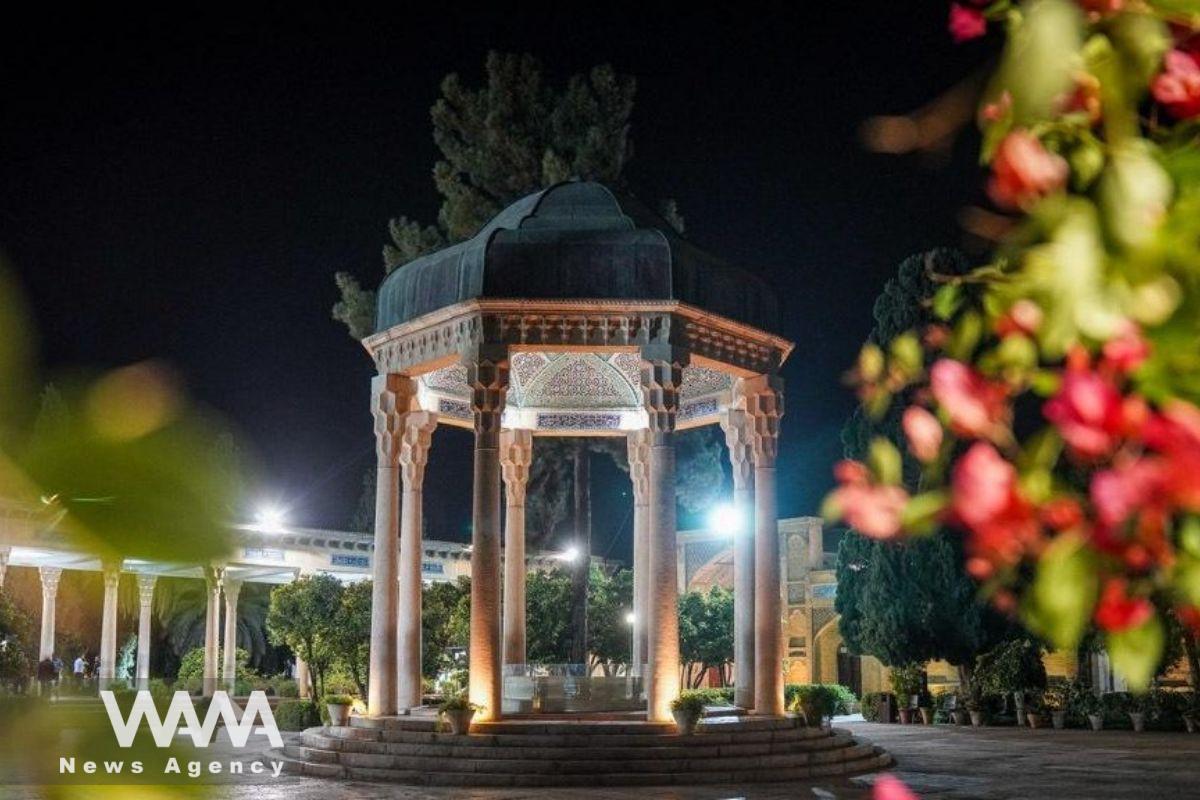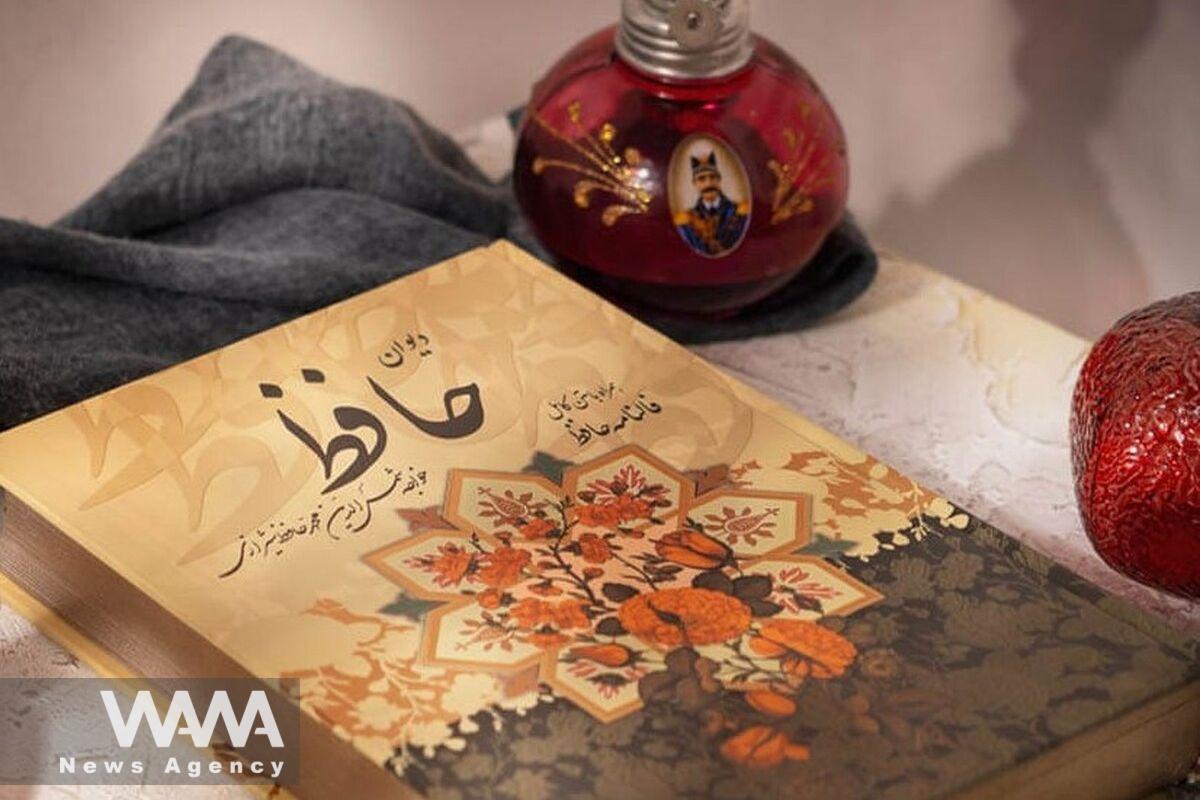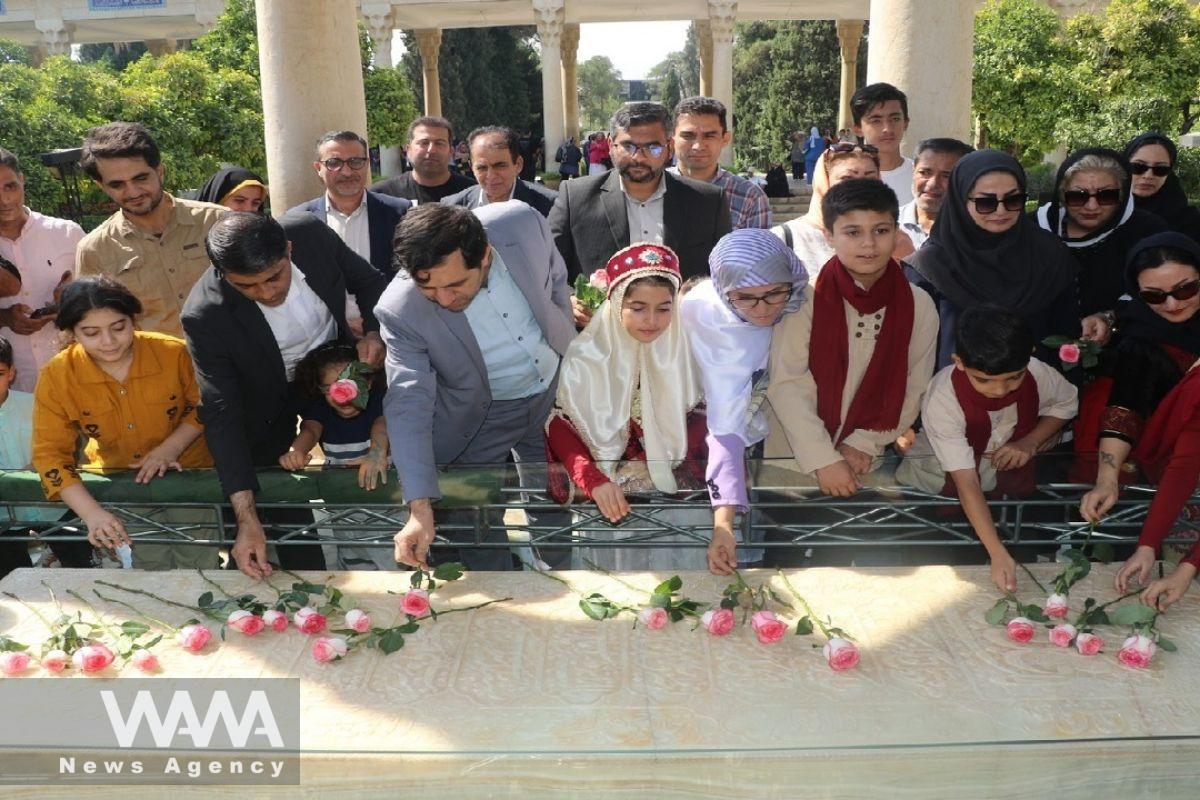Hafiz: The Poet Who Broke Boundaries
WANA (Oct 12) – Every year on October 12, Iranians and lovers of Persian poetry worldwide commemorate Hafiz, the great poet of Shiraz. However, Hafiz is not just an Iranian poet; he is the voice of a human being who has touched many hearts in every corner of the world.
Hafiz’s ghazals hold universal meaning, though composed in a specific time and place. His poems serve as a bridge between the East and the West, spirit and body, and earth and sky.
Why Is Hafiz’s Poetry Universal?
If we ask ourselves why Hafiz’s poetry, written in Persian, has managed to find such an audience from around the globe, we must look at its profound human themes. Hafiz speaks of love—a love that has both earthly colours and heavenly scents. He speaks not only of love for the beloved but also for life and freedom. In one of his famous ghazals, he writes:
“Last night, I dreamed that angels stood without
The tavern door and knocked in vain, and wept;
They took the clay of Adam and methought,
Moulded a cup therewith while all men slept.”
In this poem, Hafiz invites the reader to reflect on God, love, and the joys of life through images that connect the world of humans with the heavens. This metaphorical and multi-layered language has made Hafiz’s poetry attractive and interpretable for a global audience.
Many poets in India have been inspired by Hafiz to compose poems in his style. In Poland, Hafiz’s thoughts have also permeated the country’s literature and music, with many poets and artists drawing inspiration from his verses.

Tomb of Hafiz (Hafezieh) in Shiraz, Social media/ WANA News Agency
Hafez and Mysticism: A Path to Shared Understanding
Although Hafiz was a poet rooted in Iranian and Islamic culture, he spoke in a mystical language that transcended religious boundaries. In his poems, he criticizes hypocrisy and pretence in religion and, instead, seeks inner truth and a direct connection with God. This free and profound perspective has allowed his works to gain attention across different cultures, even in the West.
Hafiz influenced great poets like Goethe and Nietzsche. Goethe dedicated a special chapter called “Hafiz Letter” to him in his book “West-Eastern Divan.” In his “East-West Divan,” he says to Hafiz:
“Hafiz, you astonish me!
What I have, you already possess in your verse.”
This word by Goethe indicates that Hafiz’s poetry has transcended the boundaries of language and culture, finding a special place in the hearts of other nations.
Nietzsche also mentions Hafiz in his poetry. In Nietzsche’s writings, Hafiz’s name often appears alongside Goethe’s, and Nietzsche praises both as pinnacles of profound wisdom.
Hafiz’s Divan, with approximately 500 ghazals and other poems, has been published over 400 times in various languages, and its manuscripts are preserved in reputable libraries worldwide.
He brought ghazal poetry to its pinnacle, combining love and mysticism in his verses, providing a fresh path for this literary form. Inspired by the Quran, Hafez composed his ghazals so that each couplet shines brightly on its own as if it were a short and concise verse from the words of revelation.

The Divan of Hafiz. Social media/ WANA News Agency
Hafez’s Poetry: A Window to Today’s World
Hafez was not only a great poet in his time, but his voice is still resonant today for those seeking meaning in life. In a world of contradictions, his poetry reminds us of the importance of love, inner peace, and freedom. In the face of life’s hardships, Hafez invites his readers to celebrate the moments. In another ghazal, he says:
“The breath of Dawn’s musk-strewing wind shall blow,
The ancient world shall turn to youth again.”
This couplet evokes hope and a vision of a bright future in people’s hearts. HafIz’s poems remind readers that beauty and light always exist in the heart of darkness, and love is the key to connecting humanity with the world.
One of the unique features of HafIz’s poetry is his ability to express the unsaid and hidden mysteries. It is because of this capability that he is called Lisan al-Ghaib, or the Voice of the Unseen.
Iranians consult the Divan of HafIz during pivotal moments for guidance and insight. This deep connection between the people and HafIz’s poetry stems from the way his verses resonate differently with each individual, as if Hafiz wrote that poem specifically for their particular moment.
The Voice of HafIz Lives On
HafIz is a poet who remains alive—not only in the hearts of Iranians but also in the hearts of all those seeking a deeper meaning in life. Through his ghazals, he teaches that love and freedom know no boundaries and can serve as a common language for all humanity.
Every year on HafIz’s commemorative day, events such as flower offerings at his tomb in Hafezieh, poetry nights, music concerts featuring his poetry, book and art exhibitions, and academic conferences are held in honour of this great poet. Today, Iranians cherish Hafiz as a custodian of Persian literature and celebrate him as a symbol of unity and humanity among cultures.

Tomb of Hafiz (Hafezieh) in Shiraz, Social media/ WANA News Agency












